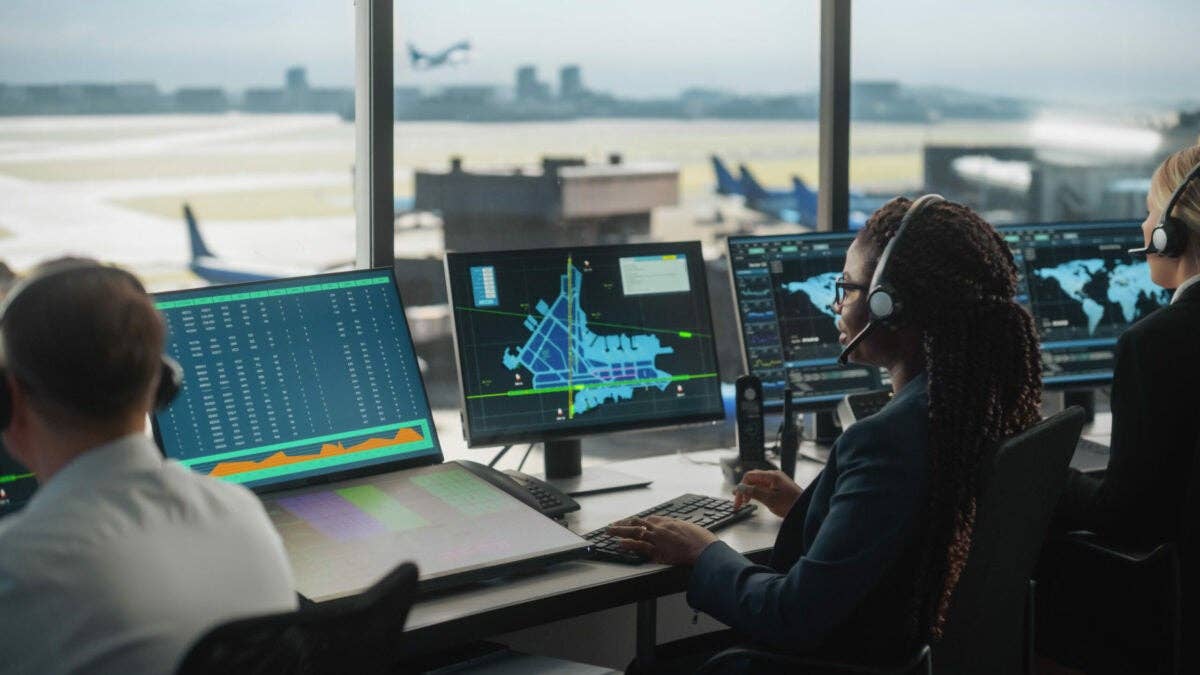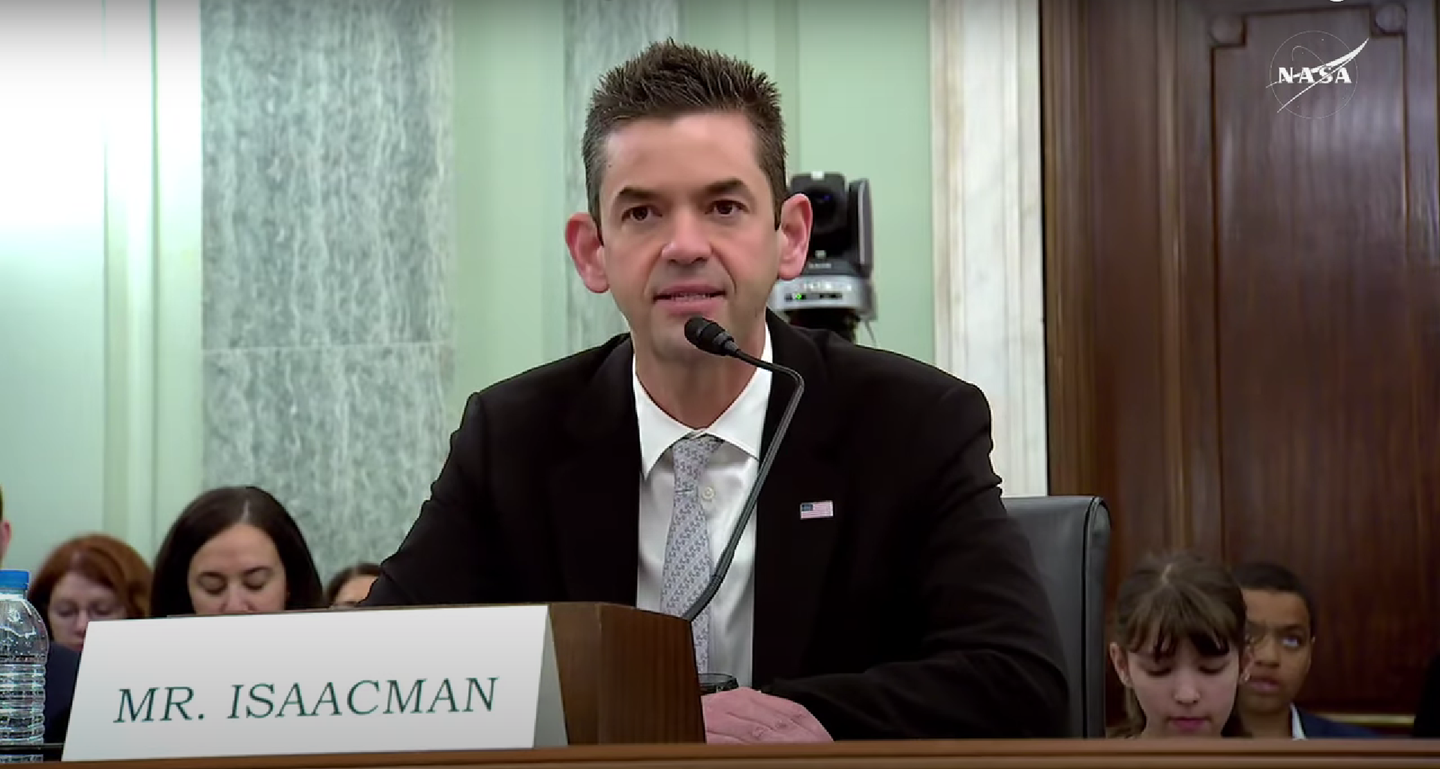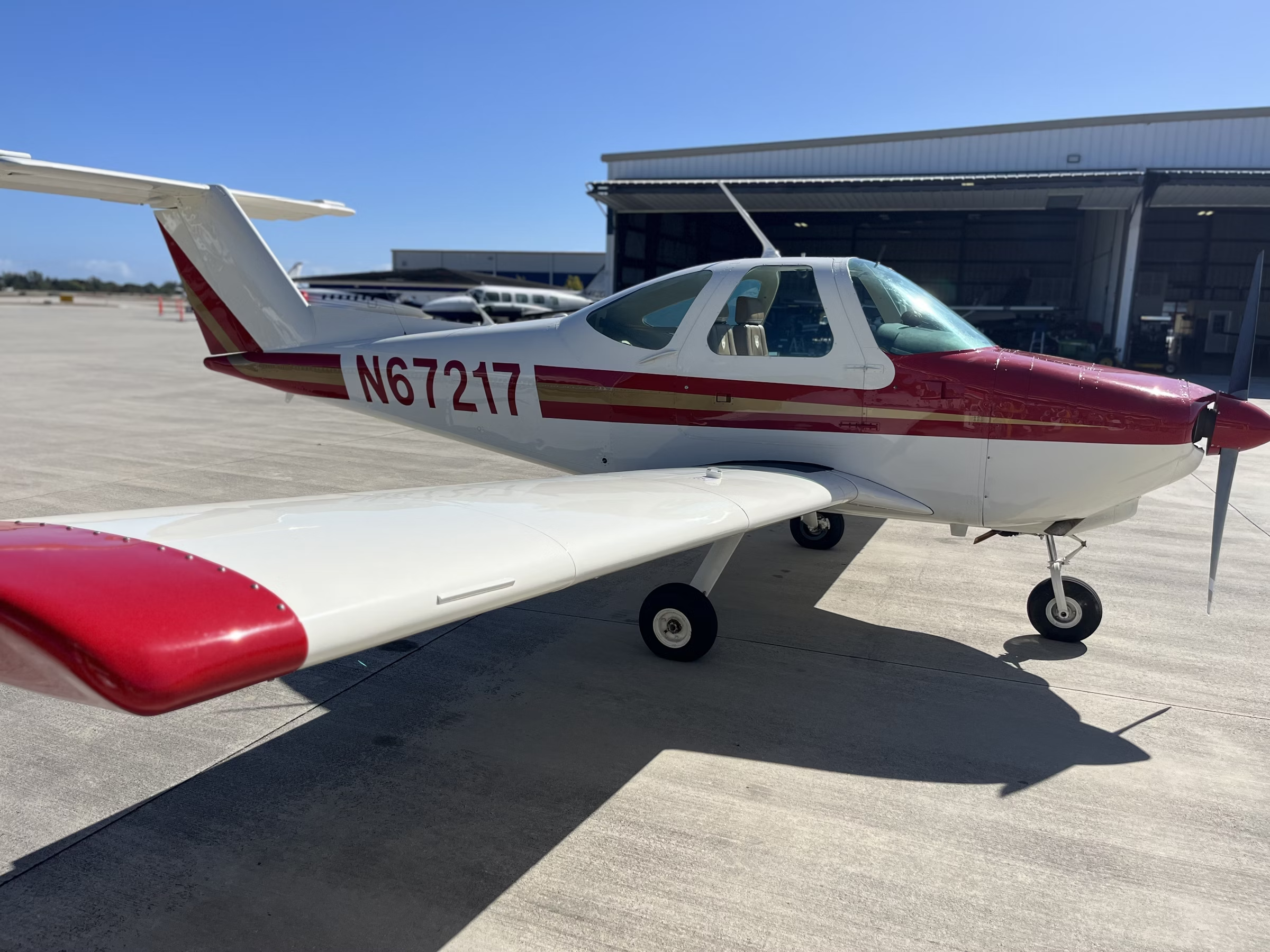How to Become an Air Traffic Controller
ATCs have an exciting and rewarding job, but the path to becoming one can be long and challenging.

In the United States, most civilian ATCs are FAA employees. [Courtesy: Shutterstock]
Air traffic controllers play a crucial role in the global aviation system. Whether they are directing aircraft on the ground at a busy airport or giving clearances to planes flying at cruising altitude, these aviation professionals work hard to keep our skies safe.
The job of an air traffic controller (ATC) is a challenging and oftentimes stressful one. At the same time, it can be a rewarding and exciting career choice. Here is what you need to know about becoming an air traffic controller.
Skills and Qualities of an Air Traffic Controller
Before applying to become an ATC, prospective candidates should consider whether they possess the key skills and qualities for the job. While some of these skills can be improved through the training process, others need to be developed beforehand.
Air traffic control facilities can be fast-paced and dynamic working environments. The stakes are also very high, as ATCs are responsible for the safety of the traveling public. ATCs must be able to work effectively under pressure and have the ability to handle multiple tasks as well.
- READ MORE: Highest Paying Jobs in Aviation
Similarly, ATCs have to be adaptable to changing situations and make accurate decisions quickly. The situation around an airport or a piece of airspace can change rapidly, and ATCs must be flexible with their decision-making. Finally, the role is focused on communication – with other controllers, facilities, and pilots – meaning that ATCs must be able to communicate clearly and effectively.
Meeting the Eligibility Requirements for an ATC
In the United States, most civilian ATCs are FAA employees. The agency has recently updated its basic eligibility requirements for air traffic control jobs, which are also sometimes referred to as air traffic specialists.
Basic eligibility requirements include U.S. citizenship, one year of full-time work experience or a bachelor’s degree, the ability to speak English clearly, and a willingness to relocate.
Prospective air traffic controllers also have to meet physical and mental fitness standards, as well as vision and hearing requirements. In addition to passing their medical tests, applicants will also need to pass a background investigation.
Applicants must also be younger than 31 years of age, but there are exceptions for experienced ATCs. Males must also be registered for the Selective Service System if they are required to do so.
ATC Application Process
The FAA accepts applicants for ATC jobs through the federal government’s job site, USA Jobs. Applications need to include documents like a resume and any relevant transcripts.
Applicants will then need to pass a skills assessment at an approved testing facility. The assessment is a multipart aptitude test that includes memory games, air traffic simulation, a personality test, and more.
The next step is to pass medical and security clearances. These include drug testing, medical exam, psychological testing, and federal background check.
ATC Training
Successful applicants attend the FAA Academy in Oklahoma City. ATC trainees are placed in one of three tracks (En Route, Terminal Radar, or Tower). Their time at the academy ranges from two to five months, depending on the track. The process begins with classroom instruction before moving into real-life simulations.
Training continues at an air traffic control facility following graduation. At this point, ATCs are placed at sites across the country and are expected to start working shifts according to the local schedule. It can take up to three years to be a fully certified controller.
Air Traffic Controller Salary
While attending the FAA Academy, trainees receive a pay of $22.61 per hour plus a per diem of approximately $120 per day. Once they are assigned to a facility, their minimum annual wage is around $46,000 plus a locality pay that depends on their assigned facility. This typically leads to an annual salary of approximately $60,000 to $70,000.
Air traffic controllers receive salary increases as they complete each training phase, as well as throughout their careers. According to the Bureau of Labor Statistics, the median pay for air traffic controllers in 2023 was $137,380 per year or $66.05 per hour. There is also room for career advancement and pay increases in management and supervisory positions.
Work Locations
FAA air traffic controllers work at facilities across the country.
While tower controllers work at airports, those in the other two tracks might work elsewhere. The facilities for En Route controllers and Terminal Radar Approach Control (TRACON) controllers are typically not located at an airport.
Applicants must be willing to relocate and work anywhere in the country. While they are given the opportunity to provide geographic preferences, the FAA assigns controllers based on its needs. Controllers can transfer between facilities throughout their careers.
Other Ways of Becoming an Air Traffic Controller
There are a few other ways of becoming an air traffic controller in the United States.
One is by joining the military as an ATC. Military controllers can earn the same FAA certifications as civilian controllers. In fact, many choose to become FAA air traffic controllers after they leave the military.
The FAA also has around 250 contract towers that are staffed by employees of private contracted companies. The approximately 1,400 air traffic contract controllers have to meet the same qualification and training requirements as FAA controllers. However, these companies typically only hire controllers who are already certified, meaning that most new hires are former FAA employees or military controllers.
Ready to Become an Air Traffic Controller?
Working as an ATC is a challenging yet highly rewarding career choice. It requires a combination of key skills such as effective communication, adaptability, and the ability to remain calm under pressure.
While the path to certification can take several years, the potential for career advancement and competitive salaries make air traffic control an appealing profession. With the opportunity to play a crucial role in the global air transportation system, this role offers a fulfilling career path for those committed to ensuring the safety and efficiency of air travel.

Sign-up for newsletters & special offers!
Get the latest FLYING stories & special offers delivered directly to your inbox






